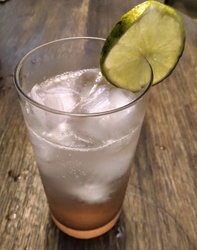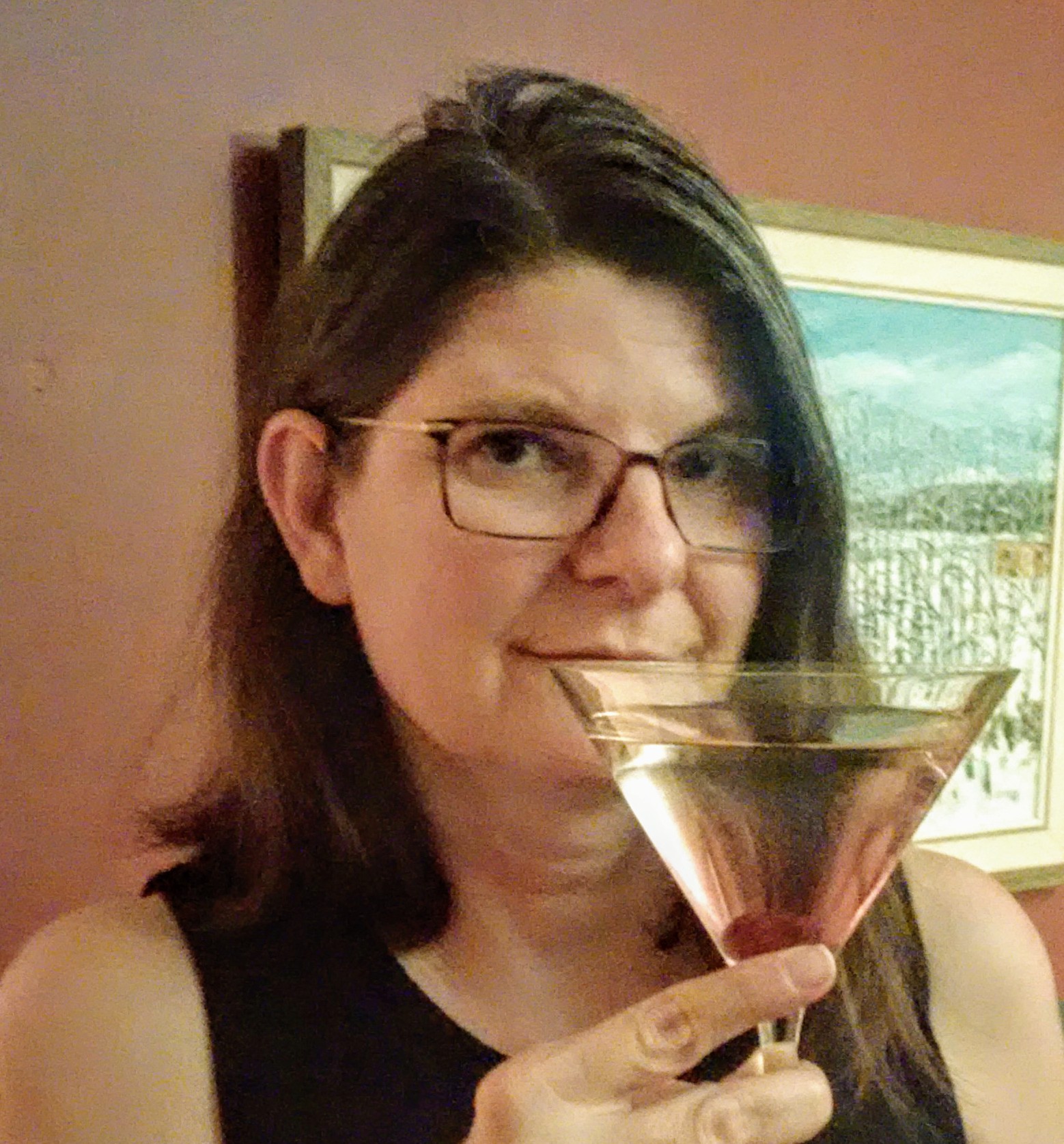Earlier versions of these posts were published on the Drunken Menno Blog at slklassen.com as "Rage Against the Machines. Or Not" and "Check your Privacy Settings."
Rage Against the Machines
Some think it ironic that the region with the largest concentration of Mennonites in Canada east of Winnipeg is also a booming centre of Canada's high tech industry.
Some find it insulting that this is ever considered ironic.
Those who find it ironic think of Mennonites as averse to technology. When they think of Waterloo County Mennonites, in particular, they think of Old Order Mennonites who, it is true, are not typically finding themselves employed at Blackberry or Google.
Those who find it insulting are likely to point out that Old Order Mennonites are a small percentage of all the Mennonites in Waterloo Region and that many branches of the Mennonite Church have never had problems adopting technological advances. Which is also true.
To a point. I can't think of a single progressive Mennonite in my broad acquaintanceship who hasn't wrung their hands over the distracting evils of email, Facebook and/or the internet more generally. We all seem to imagine a better time when life was slower and simpler and less encumbered with devices.
But we haven't always been late adopters of technology.
Back in the really good old days when we were fleeing for our lives and taking over Munster, no one was objecting to the technology involved. As far as I can tell, we were, in fact, all in favour of the latest information technology of the time—the moveable type for the printing press which made the Bible so much more accessible to the reading Anabaptist public.
It was a good thing.
Neither were the Mennonites of the early industrial age joining with the Luddites to smash the machines that threatened their agrarian way of life. This is, admittedly, at least in part because Luddites were in England and Mennonites weren’t allowed there. But the Mennonites in Prussia, the United States and later in Russia all participated in proto-industry and the industrial production of goods (and liquors) and gave no indication of wishing to smash their machines.
Raging against machines came later, if it came at all, and despite our reputation for technophobia, tended to be piecemeal and inconsistent. People unfamiliar with Mennonites are always puzzled to see Old Order Mennonites using cell phones or Old Colony Mennonites driving trucks. I often come across images on Twitter taken by outraged non-Mennonites appalled by Mennonites not living up to their image of a perpetual nineteenth century.
Which must be very disappointing to all the Non-Mennonites out there who think it their job to police us.
The Mennonites of my own present and past are not particularly opposed to technological innovations. My mother's father, a refugee from the Chortitza colony in South Russia, spent much of his adult life tinkering in his workshop on various inventions never actually completed for want of the money to manufacture or patent them. My father's parents were less interested in pushing the technology boundaries of their lives, but still, by now a number of their progeny do make their livings off the motherboards of the modern world.
But I'm pretty sure they still have their doubts. A couple of things about the modern world's technology just can't help but rankle.
Obviously, the biggest and most frequently cited problem is the threat that modern technology might connect us to the modern world. Ever since we began identifying The World with all things evil, machines that drew us closer to it started coming under suspicion. Even our foundational document—the Schleitheim Confession—pushed for separation from the world. Many a good schism has been helped along by disputes over just how separate from the world we all need to be. It's hard to know just how we can be in the World Wide Web without being of the World Wide Web.
But I think we'd get over all that if these devices didn't bump up against our thoroughly in-bred frugality. If we could just buy one device, wrap it in a quilt, and expect it to last a lifetime or three, we'd stop our hand-wringing and run for the closest electronics dealer. I imagine that if we could buy one at a thrift shop, our concerns about distraction and worldliness would just disappear into the ether while we merrily went about setting up (closed) Facebook groups and youtubing hymnsings.
We already do those things, of course, but now we do them guiltily, tapping away on our smartphones while wringing our hands and gnashing our teeth, all the while questioning our separateness and our stewardship. Sometimes, we even rage against these little machines. Though, it's a Quiet in the Land kind of rage.
You might not have noticed.
__________
Tech 1525
Because Waterloo—the home of so many Ontario Mennonites—owes a great deal of its success in high tech to the Blackberry, the Tech 1525 cocktail also owes some of its success to the blackberry. The drink is a variation on the classic French 75. The French 75 takes its name from a piece of French artillery, something a Mennonite cocktail cannot abide. Instead, the Tech 1525 references both our relationship to technology and the year of our beginnings. Be sure to raise a glass to the printing press.
- 1 oz gin
- 1/2 oz lemon juice
- 1/2 oz maple syrup
- 2 blackberries
- 3-4 oz sparkling wine
Muddle one of the blackberries in the bottom of a shaker. Add gin, lemon juice and maple syrup. Add ice to the shaker, close and shake until chilled. Strain into a champagne flute or coupe glass. Top with sparkling wine and garnish with the other blackberry. Wring your hands for a bit, wondering if this cocktail was maybe too worldly for you to consume. Sigh heavily a few times, and then lean back and enjoy.
______________________________________________________________________________
Mind Your Own Internet Bubble
It may be counter-intuitive to some but I contend that there are a few ways in which Mennonites are uniquely suited for living in the internet age. For one thing, we are accustomed to living in bubbles, and for another, we aren't really huge advocates of privacy.
Neither of those are without limits. I always bristled at being told I lived in a bubble when I was younger and still had the energy to bristle. At that point, I understood being in a bubble as meaning that I had no interaction with people who weren't like me. And that wasn't true. I knew all sorts of different kinds of Mennonites. And also a few carefully curated non-Mennonite friends. And I watched TV. So I considered myself well-versed in the ways of the world and not at all bouncing about in a bubble.
I was, of course, in denial.
But then the internet came along and we all learned to love life in bubbles. Online, there are bubbles of people who care every bit as passionately about watching people open their packages, learning about transit systems, or developing cocktail recipes as we Mennonites care about hymns, quilt auctions, theological exegesis, and potluck planning. It is a mad, mad, mad, mad world of internet bubbles and our Mennonite bubbles aren’t anything like the oddest of them.
Every now and then, the bubbles bump up against each other or intersect. Like, for instance, when someone in the Mennonite internet bubble tries to push her way into the bubble of cocktail recipes writers. That happens—no, not a lot. Mostly we just stay where we belong and keep our noses out of other people's bubbles. We could call that respecting their privacy. Or we could just call it a general disinterest.
Because privacy isn't really something we care a lot about within our own communities. To be sure, we care about outsiders coming in and poking about. I've known all my life that the Old Order Mennonites weren't all that keen on people from outside of their community popping up to photograph them. And my own kind of Mennonites are often ambivalent about the poets, novelists and journalists who show to the world those parts of us that we think are none of their business.
Back when the internet first showed its face at the Church door, there was a lot of anxiety about evil governments discovering our radical pacifism and coming after us. And about child predators. Like the rest of the world, we fooled ourselves into believing that child predators were more likely to be found on the Web than in our pews.
We weren't thinking, then, about the commercial side of things and the way that, rather than baring ourselves open to the world by engaging with the web, we'd just be asking Herald Press to chase us around the internet with Google ads. I'm pretty sure Google thinks I'm a better Mennonite than I really am, but once they figure that out, I expect I'll start seeing ads for support groups for Ex-Mennos with Issues and other commercial enterprises identified by clever algorithms as uniquely suited to the ambivalent Mennonite consumer.
Can't wait.
But privacy within our Church community bubble is an entirely different matter. And by different, I mean nonexistent. In the Mennotopia, the Church is a place of home, where we share with each other all our hopes, fears, joys and concerns, and carry each others' burdens. It sounds wonderful. And it is. But it comes at the price of privacy; sharing is a small step from gossip and gossip is a small step from everyone knowing about your strange obsession with airport carpeting.
Not that it's consistent. I regularly run into people who assume I know far more about their lives than I do. I'm never sure if they're disappointed or relieved to learn that I don't. Because we can't really tell when that happens whether it is a triumph of discretion or a failure of the caring community. But discretion's not really a virtue, so I suspect that the balance tips in such instances as failures in community.
Privacy—pshaw; that's for other folks.
We Mennonites have known for a long time that nothing is lost from the breath of gossiping community members. And now the internet confirms that nothing is lost forever.
__________
MennoTechie Sunrise
Despite our general recognition that privacy is an illusion, some Mennonite communities harbour a number of people who insist on thinking that their drinking is private and no one else's business. Everything being everyone's business, this strategy is obviously misguided. Instead, my advice to such people is to accept the lack of privacy and just invite over all the key community members for a drink.
This cocktail is a variation on the Tequila Sunrise because we are casting sunlight on all things previously deemed private. It is a variation on the original Tequila Sunrise, that calls for lime, soda and cassis. This one uses raspberry instead of cassis because I've never met a Mennonite who didn't love raspberries and it has more bitter notes through the addition of rhubarb and the substitution of tonic water for soda water. After all, it's hard not to be just a little bit bitter about all that well-meaning gossip.
- 1 1/2 oz tequila
- 1/2 oz lime juice
- 1/2 oz rhubarb syrup
- 3/4 oz Chambord or other raspberry liqueur
- 3-4 oz tonic water
Mix the tequila, lime juice and rhubarb syrup in the bottom of a tall Collins glass. Fill the glass with ice and then add the tonic water, almost filling the glass. Stir gently. Slowly pour the raspberry liqueur over the ice, allowing it to settle in the bottom for the sunrise effect. Take a picture, post to Facebook, Instagram and/or Twitter, serve your guests, and then go ahead and enjoy the beverage.


